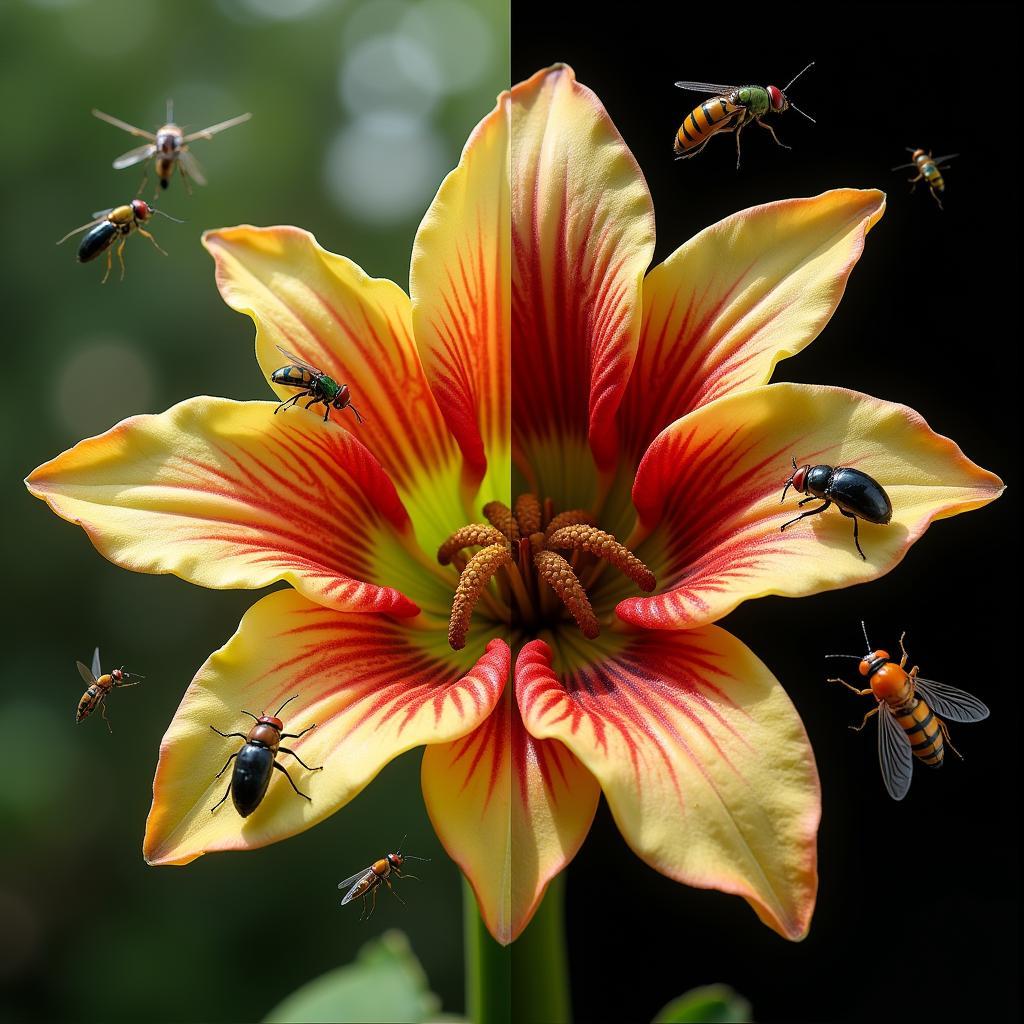The Story of African Corn: A Staple Crop and Cultural Icon
African Corn, also known as maize, is far more than just a food source; it’s a cornerstone of African cuisine, culture, and economies. From the bustling markets of Nairobi to rural villages across the continent, this versatile grain plays a vital role in daily life. This article delves into the fascinating story of African corn, exploring its history, diverse uses, and significance in various cultures.
For centuries, African corn has nourished communities, shaped culinary traditions, and inspired artistic expressions. Its impact is undeniable, weaving its way into the very fabric of African societies. Learn more about African cornrow styles.
From the fields where it is meticulously cultivated to the kitchens where it is transformed into countless dishes, African corn represents resilience, resourcefulness, and a deep connection to the land. Let’s journey together to uncover the rich story of this remarkable grain.
A Brief History of African Corn
Contrary to popular belief, maize didn’t originate in Africa. It was introduced from the Americas by Portuguese traders in the 16th century. However, it adapted remarkably well to the diverse African climates and quickly became a staple crop, integrating seamlessly into existing agricultural practices. Its adaptability allowed it to flourish in various regions, from the fertile lowlands to the arid highlands. This rapid adoption and adaptation transformed the agricultural landscape of Africa, contributing significantly to food security and shaping culinary traditions that endure to this day.
Culinary Delights: The Many Faces of African Corn
African corn’s versatility shines in the kitchen. It is ground into flour for fufu, a dough-like staple enjoyed in many West African countries, and forms the base of ugali, a popular dish in East Africa. From hearty stews to refreshing beverages, the possibilities are endless. African corn is also a key ingredient in many fermented foods, adding depth and complexity to local flavors. Its unique texture and subtle sweetness make it a perfect complement to both savory and sweet dishes. Explore African cornrow braid hairstyles for more cultural insights.
From the bustling streets of Accra to the serene villages of Malawi, each region boasts its own unique corn-based delicacies. These culinary traditions reflect the ingenuity and creativity of African cooks, who have transformed a simple grain into a culinary masterpiece. Dr. Abena Osei, a renowned Ghanaian food historian, emphasizes this point: “African corn is not just an ingredient; it’s a canvas for culinary innovation. It reflects the diversity and richness of African culinary heritage.”
Beyond the Plate: Cultural Significance of African Corn
African corn extends its influence beyond the realm of food. It features prominently in ceremonies, rituals, and artistic expressions. In some cultures, it symbolizes prosperity and fertility, playing a central role in harvest festivals and traditional weddings. The kernels are often used in decorative arts, adorning clothing, jewelry, and ceremonial objects. Its presence in these cultural contexts speaks volumes about its profound significance in African societies. See more on the African Corner.
Cultivating the Future: African Corn in Modern Agriculture
African corn continues to play a vital role in the continent’s agricultural landscape. Modern farming techniques and improved seed varieties are boosting yields and enhancing food security. Research and development efforts focus on developing drought-resistant and pest-resistant varieties, ensuring the sustainability of corn production in the face of climate change. Check out African cornrow hairstyles pictures.
Professor Chinua Achebe, an agricultural scientist from Nigeria, explains, “African corn is a crucial crop for our continent’s food security. Investing in research and sustainable farming practices is essential for its future.”
Conclusion: A Grain of Hope
African corn is much more than just a staple food; it’s a symbol of resilience, ingenuity, and cultural richness. From ancient traditions to modern agriculture, its story is deeply intertwined with the history and future of Africa. By understanding its significance, we can appreciate the diverse culinary heritage and the vital role it plays in nourishing communities across the continent. As we continue to explore the vast potential of this remarkable grain, African corn remains a symbol of hope and sustenance for generations to come. Explore further through African Corner dance for WhatsApp status.
FAQ
- What is the other name for African corn? Maize.
- Where did African corn originate? The Americas.
- When was African corn introduced to Africa? The 16th century.
- What is a popular East African dish made from corn? Ugali.
- What is fufu made from? Corn flour.
- What does corn symbolize in some African cultures? Prosperity and fertility.
- What are some modern farming techniques used to cultivate African corn? Improved seed varieties and drought-resistant techniques.
Common Questions:
- How can I incorporate African corn into my own cooking? Numerous recipes online and in cookbooks provide inspiration for using cornmeal, corn flour, and fresh corn in various dishes.
- Where can I learn more about the cultural significance of African corn in different regions? Ethnographic museums, cultural centers, and academic resources offer valuable insights into the diverse cultural practices associated with corn.
Further Exploration:
- Check out our articles on other African staples, such as cassava and millet.
- Explore the history and impact of agriculture in Africa.
When you need assistance, please contact us via Phone: +255768904061, Email: [email protected] or visit our address: Mbarali DC Mawindi, Kangaga, Tanzania. We have a 24/7 customer support team.

